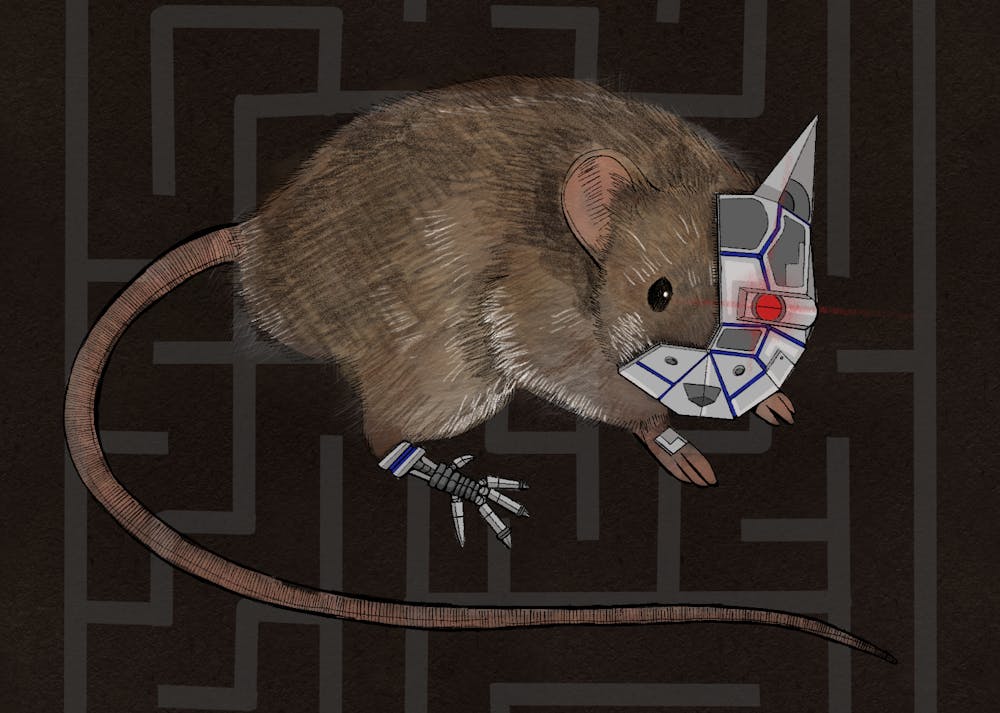Only certain scientific studies at ASU require ethics as a part of their curriculums, but biological researchers consider the issue far from optional.
In a world where knowledge and technology are moving at an incredible pace, bioethics emerges as a guiding light through the complex choices researchers face. As science continues to advance and new technologies emerge, bioethics helps scientists and engineers prioritize what's right and ethical over what's simply possible.
"In an ideal world, ethics would come first," said Sandra Woien, associate teaching professor at the School of Historical, Philosophical, and Religious Studies.
Without such ethical boundaries, the vast potential of powerful technologies like CRISPR could easily be overshadowed by the consequences of their misuse. CRISPR, which is a genome editing technology, is unique since the public can order kits to perform their own research.
"To be honest, that's frightening for me," Woien said. "That's slightly terrifying, that ... a pathogen could get released."
The line between progress and recklessness becomes blurred without clear ethical guidelines to steer decision making. Woien said this why it is especially important for ethics to be a required part of the scientific process.
"Like in terms of COVID, there's lots of speculations of how it ever happened. But I know, one line of inquiry does suggest a lab leak, right?" Woien said. "When you're doing genetic research ... you have the potential (that) viral pathogens can be leaked into the environment,"
Functionally, ethics is a process of asking questions.
"Do the rules cover everything they should? Are we doing our research in a way that's responsible and fair?" said Ben Hurlbut, associate professor at the School of Life Sciences.
Then there is the idea of consent, which is not just composed by saying "yes," but also looking at responsibility, money and social factors. This is where things can get complicated with rules, especially when it comes to agencies like the Food and Drug Administration. While agency rules highlight a starting point, they might not catch every ethical concern.
Just as not everyone is equipped to wield certain tools, there are ethical considerations about who should be entrusted with the power to use specific technologies. This necessitates collaborative conversations involving not only scientists but also ethicists, policymakers and the public.
Hurlbut said these conversations shouldn't be rare occurrences; they should be part of the everyday scientific practice.
"Conversations that are a lot more open and a lot more heterogeneous ... give a lot more opportunity for, you know, a wider society that has a stake in the things that science and technology do," said Hurlbut. "It touches upon, say, fundamental dimensions of being human."
Just following the rules doesn't always mean scientists are doing the right thing, because most situations do not fit within established rules.
"A lot of companies do, in practice, work according to the rules that apply to federally funded research, but they don't have to," said Emma Frow, assistant professor at the School of Biological and Health Systems Engineering.
"I think it's important to have norms, and to have conversations that produce robust thinking about norms, because that guides how most people will behave," Hurlbut said, "Even if some people depart from it."
It's not just about having rules in place, it's about creating a way of thinking that always keeps ethics in mind, both now and in the future. The power bestowed upon scientists is immense, and with it comes the ethical responsibility to ensure that progress aligns with ethical values.
"Thinking about how science and ethics could coevolve is really important," said Frow.
Scientists aren't just bystanders; they're active contributors to shaping the ethical trajectory of science and its applications.
Frow said the way the science community is trained to define and solve problems is independent from the community they aim to serve.
"That's where you get that mismatch of this really cool technology that actually doesn't work for the world," Frow said.
Today and tomorrow, bioethics acts as a compass, leading the way through the uncharted territories of scientific progress while safeguarding the ethical compass of each person. It serves as a reminder to stay anchored in the shared values that are key to ensuring a future that remains ethically grounded and socially responsible.
Edited by River Graziano, Alexis Waiss and Grace Copperthite
Reach the reporter at dmanatou@asu.edu.
Like The State Press on Facebook and follow @statepress on X.
Dimitra is a junior studying biomedical engineering and physics. This is her second semester with The State Press. She has also worked as a research assistant in Kirian Lab.




